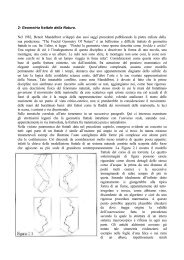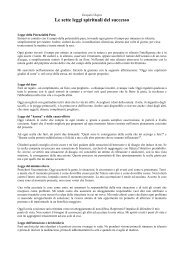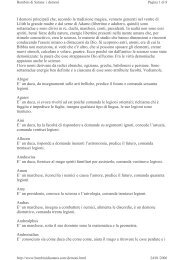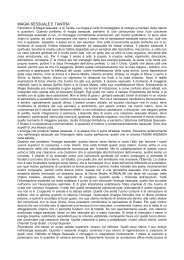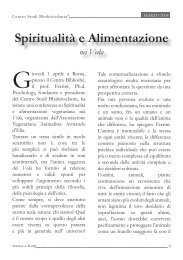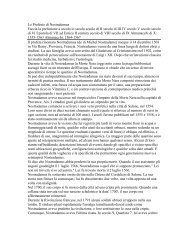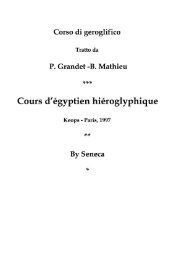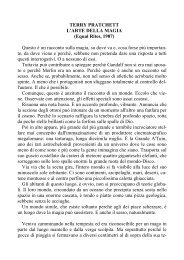60 ~ TALIBANThe Ghilzais, who had dominated the anti-Soviet war effort were notprepared to be used as cannon fodder by the Taliban without adequaterepresentation in the Durrani-dominated Taliban Shuras. They wouldcome if they were given a share of power. Ghilzai commanders with theTaliban were extremely critical of Taliban tactics in Mazar. 'There weretoo many mistakes made in Mazar. The initial agreement between Malikand the Taliban happened in too short a time. They should have discussedthe agreement for a longer time and built up a dialogue with each other.They also made many military mistakes,' Jalaluddin Haqqani, the leadingeastern Pashtun commander with the Taliban told me in Kabul in July1997.Haqqani, who commanded Taliban troops on the Kabul front, was aveteran Pashtun commander from Khost in Paktia province who had.jjoined the Taliban in 1995. He was one of the most celebrated commandersfrom the anti-Soviet war. Although Haqqani was made a ministerin Kabul, he and other non-Kandaharis remained extremely bitter thatthey were kept out of the decision-making process that took place inKandahar under Omar, rather than in Kabul. 7 After the Mazar defeatthe Taliban gave Haqqani a large sum of money to recruit 3,000 Ghilzaitribesmen. Haqqani arrived with his men on the Kabul front, but beingpowerless to make military decisions and the fact that they were led byKandahari officers at the front led to mass desertions. Within two monthsHaqqani had only 300 of his new recruits left. Even more disturbing wasthat villages around Kandahar were refusing to send their sons to enlistwith the Taliban. For the first time the Taliban had a recruitment problem and a manpower shortage.For the Central Asian states the bloodshed on their doorstep created aparanoid reaction as they considered the spectre of the war crossing intotheir territories and the thousands of Afghan refugees fleeing across theftporous borders. In an unprecedented move, military security washeightened throughout the region. Some 3,000 Russian troops on theUzbekistan-Afghanistan border, 25,000 Russian troops on the Tajikistan-?Afghanistan border, Russian border guards in Turkmenistan and localarmy divisions all went on a high state of alert. Uzbekistan and Tajikistanclosed their borders with northern Afghanistan. At Termez, Uzbek helicoptergunships flew patrol as troops laid tank traps and fortified the bridgethat crosses the Amu Darya river, which divides Afghanistan from Central Asia.Russia offered to send ten battalions of troops to Kyrgyzstan afterappeal by Kyrgyz President Askar Akayev, even though his country has noborder with Afghanistan. Russia and Kazakhstan organized an emergencymeeting of the Commonwealth of Independent States (CIS) to discithe crisis, where Russian Foreign Minister Yevgeny Primakov promiMAZAR-E-SHARIF 1997: MASSACRE IN THE NORTH ~ 61'very tough and effective actions by Russia', if the Taliban advanced further.Turkmenistan, a self-declared neutral state which bordered westernAfghanistan, had developed working relations with the Taliban but theTurkmen were unnerved by the fighting around Mazar. For the first time9,000 Afghan Turkmen crossed the border into Turkmenistan seekingshelter from the fighting.Iran said it would continue to support the anti-Taliban alliance andappealed to Russia, India and the Central Asian states to help them also.Iranian Foreign Minister Ali Akbar Velayti urged the UN to intervene.The Taliban were furious with all of their neighbours. 'Iran and Russiaare interfering and supporting the opposition. They have given aircraft tothe opposition to carry out bombardments. Iran is flying up to 22 flights aday to Mazar carrying arms,' said Mullah Mohammed Abbas, the TalibanMinister of Health. 8Iranian and Central Asian diplomats bitterly accused Pakistan of notonly supporting the Taliban, but of lying and betraying a solemn commitmentmade by Prime Minister Nawaz Sharif just a week before the Talibanoffensive. At a summit of regional heads of state in Ashkhabad, the capitalof Turkmenistan, Sharif had promised to reign in the Taliban andprevent the war spreading to the north. 'Pakistan's credibility in CentralAsia is zero right now,' a senior Uzbek diplomat told me. 9However, the arrival of the Taliban in the north did have a salutaryeffect on the four-year-old civil war in Tajikistan as it forced both sidesin the conflict to quicken the pace of negotiations out of fear of theTaliban. A peace settlement between the Tajik government and theIslamic opposition, brokered by Russia and the UN was finally reached inMoscow on 27 June 1997. The settlement provided a major boost toMasud as Russia could now re-supply him from bases inside Tajikistan.Masud was given the use of the airport in Kuliab in southern Tajikistanwhere he received Russian and Iranian supplies which he then flew intothe Panjshir valley.The anti-Taliban alliance now tried to cement their unity by reformulatinga new political alliance, which had to take into account Dostum'sdeparture from the scene. On 13 June 1997 they set up the 'UnitedIslamic and National Front for the Salvation of Afghanistan' and declaredMazar as their capital. They reappointed Burhanuddin Rabbani as Presidentand Masud as the new Defence Minister and promised to form a newgovernment which would include tribal and Islamic leaders as well astechnocrats. But the pact was doomed to failure as again differencesbetween Malik, Masud and Khalili prevented the Uzbeks, Tajiks and Hazarasfrom working together.At the root of the split was the other leaders' suspicions of Malik afterhis string of betrayals. Malik had been unable to prevent a force of some
62 TALIBAN2,500 Taliban, who had remained behind in the north, from capturingthe city of Kunduz which had an airport. The Taliban reinforced thisenclave with daily flights of men and materials from Kabul. While Malikcould not or would not drive the Taliban out of the north, Masud wasmoving closer to Kabul.In mid-July, Masud broke the military stalemate north of Kabul, byrecapturing Charikar and the Bagram airbase, killing hundreds more Talibantroops. By September, Masud's forces were once again positioned only20 miles from Kabul. Both sides traded artillery and rocket bombardments,which forced nearly 180,000 civilians to flee the lush Shomali valley justnorth of Kabul and now on the front line. As the Taliban retreated fronjthe Shomali, they poisoned water wells and blew up small irrigation channelsand dams in a bid to ensure that the local Tajik population wouldnot return in a hurry. The war was now not just uprooting and killingcivilians, but destroying their very means of livelihood and turningKabul's agricultural belt into a wasteland.The anti-Taliban alliance had now created a huge 180-degree arc thatsurrounded Kabul. To the west and north of the city were Masud's forceswhile to the east and south were Khalili's Hazaras. As speculationmounted that they may launch an attack on Kabul, the Taliban remainedconfident that the opposition was too divided to attack Kabul. 'We havedivided the opposition into two parts by putting our forces into Kunduz,The northern groups are disunited against each other. The other Uzbekgenerals cannot rely on Malik. He has already betrayed them once andnow he is just trying to save himself. No group has enough forces to fightthe Taliban on their own, so they have to try and unite but theynever unite,' said Haqqani. 10Doubts about Malik's loyalty to the alliance appeared to be justified,when in September the Taliban force in Kunduz took him by surprise^The Taliban broke out of their Kunduz enclave and with the help ofPashtun tribes in the area launched another attack on Mazar. On 7 September1997 they captured the town of Tashkhorgan, creating panic ir*Mazar. As the Taliban advanced on Mazar, heavy fighting broke outbetween Uzbek troops loyal to Malik and others loyal to Dostum. Malik'shouse was burnt down by Dostum's troops and he fled to his base in Faryabprovince and then escaped to Turkmenistan from where he went on toIran.In a dramatic turnaround, Dostum returned to Mazar from exileTurkey and rallied his troops to defeat Malik's supporters and pushTaliban out of the Mazar region. Mazar descended into chaos asUzbeks again looted parts of the city and the offices of UN aid agenciforcing humanitarian aid-workers to abandon Mazar for the second tiin a year. As the Taliban retreated they massacred at least 70 Shia HazaMAZAR-E^SHARIF 1997: MASSACRE IN THE NORTH ~ 63in Qazil Abad, a village south of Mazar, and perhaps hundreds more. 'TheTaliban swept through this village like storm. They killed about 70people, some had their throats slit, while others were skinned alive,' saidSohrab Rostam, a survivor of the massacre. 11With the Taliban retreating back to Kunduz, Dostum tried to consolidatehis position, but Mazar was now virtually taken over by Hazara groupsand Dostum was forced to abandon the Uzbek capital and set up hisbase in Shiberghan. Acute tensions between the Uzbeks and the Hazarasundermined the anti-Taliban alliance and Dostum still had to win overMalik's supporters. He did so by exposing the atrocities committed byMalik. Dostum's troops unearthed 20 mass graves near Shebarghan in theDash-te-Laili desert in Jowzjan province where more than 2,000 Talibanprisoners of war had been massacred and buried. Dostum accused Malikof the massacres, offered the Taliban help to retrieve the bodies and calledin the UN to investigate. He released some 200 Taliban prisoners as agesture of goodwill. 12Subsequent UN investigations revealed that the prisoners had beentortured and starved before dying. 'The manner of their death was horrendous.Prisoners were taken from detention, told they were going to beexchanged and then trucked to wells often used by shepherds, which heldabout 10 to 15 metres of water. They were thrown into the wells eitheralive or if they resisted, shot first and then tossed in. Shots were fired andhand grenades were exploded into the well before the top was bulldozedover.' said UN Special Rapporteur Paik Chong-Hyun who inspected thegraves. 13Later there were eye-witness reports which made it clear that viciousethnic cleansing had taken place, 'At night when it was quiet and dark,we took about 150 Taliban prisoners, blindfolded them, tied their handsbehind their backs and drove them in truck containers out to the desert.We lined them up, ten at a time, in front of holes in the ground andopened fire. It took about six nights,' said General Saleem Sahar, anofficer loyal to Malik, who had been arrested by Dostum. 14 The use ofcontainers was particularly horrific and they were to be used increasinglyas a method of killing by both sides. 'When we pulled the bodies out ofthe containers, their skin was burned black from the heat and the lack ofoxygen,' said another of Malik's generals, who added that 1,250 Talibanhad died a container death.The catastrophe in the north and the heavy fighting that followedthrough the summer only further widened the ethnic divide in Afghanistanbetween the Pashtun Taliban and the non-Pashtuns. The country wasnow virtually split along north-south lines and also along Pashtun andnon-Pashtun lines. All sides had carried out ethnic cleansing and religiousPersecution. The Taliban had massacred Shia Hazara villagers and forced
- Page 1 and 2: YALE NOTA BENE"The broader storyher
- Page 3 and 4: TalibanMilitant Islam,Oil and Funda
- Page 5 and 6: Vi ~ CONTENTSChapter 8A Vanished Ge
- Page 7 and 8: AFGHANISTAN•^ UZBEKISTAN J TAJIKI
- Page 9 and 10: 2 ~ TALIBANaccounts for some 40 per
- Page 11 and 12: "6 ~ TALIBANgas riches of landlocke
- Page 13 and 14: 10 ~ TALIBANgious mix that was to m
- Page 15 and 16: Part 1History of theTaliban Movemen
- Page 17 and 18: 18 ~ ISLAM OIL AND THE NEW GREAT GA
- Page 19 and 20: 22 ~ ISLAM OIL AND THE NEW GREAT GA
- Page 21 and 22: 26 ~ ISLAM OIL AND THE NEW GREAT GA
- Page 23 and 24: 30 ~ ISLAM OIL AND THE NEW GREAT GA
- Page 25 and 26: 34 TALIBANKabul- Hikmetyar had alli
- Page 27 and 28: 38 ~ TALIBANrHERAT 1995: GOD'S INVI
- Page 29 and 30: 42 ~ TALIBANdo manage to take Kabul
- Page 31 and 32: J46 ~ TALIBANgreater weight to UN e
- Page 33 and 34: 50 ~ TALIBANas they hung from steel
- Page 35 and 36: 54 ~ TALIBANthey would help rearm t
- Page 37: 58 TALIBANGul Mohammed Pahlawan, Gh
- Page 41 and 42: 66 TALIBANshould throw all aid agen
- Page 43 and 44: 70 ~ TALIBANyears of battle and hel
- Page 45 and 46: 74 ~ TALIBANThousands of Hazaras we
- Page 47 and 48: 78 TALIBANhas become a plague,' sai
- Page 49 and 50: NEW STYLE FUNDAMENTALISM OF THE TAL
- Page 51 and 52: 86 TALIBANsity students - Hikmetyar
- Page 53 and 54: 90 TALIBANSharia was heavily influe
- Page 55 and 56: 94 TALIBANinflamed the debate in th
- Page 57 and 58: 98 TALIBANizing factor of Islam, it
- Page 59 and 60: 102 TALIBANadministrations made the
- Page 61 and 62: 106 ~ TAUBANfrom working, but it no
- Page 63 and 64: TALIBANUniversity, she held down a
- Page 65 and 66: 114 TALIBAN A VANISHED GENDER 115Ta
- Page 67 and 68: 118 TALIBANUS$1,300 - a small fortu
- Page 69 and 70: 122 TALIBANper cent of the total Pa
- Page 71 and 72: 126 TALIBANequipment, no electricit
- Page 73 and 74: 130 ~ TALIBANfight with the Mujahed
- Page 75 and 76: 134TALIBANAugust 1996 noted that Bi
- Page 77 and 78: 138 ~ TALIBANwho were using the Kho
- Page 79 and 80: 11DICTATORS AND OILBARONS: THE TALI
- Page 81 and 82: 146 TALIBAN DICTATORS AND OIL BARON
- Page 83 and 84: 150 — TALIBANgrowth of beards and
- Page 85 and 86: 154TALIBAN1998 when international o
- Page 87 and 88: 158 ~ TALIBANaround Afghanistan? Af
- Page 89 and 90:
162 TALIBAN ROMANCING THE TALIBAN 1
- Page 91 and 92:
166 TALIBAN ROMANCING THE TALIBAN 1
- Page 93 and 94:
ROMANCING THE TALIBAN 2: 1997-99 17
- Page 95 and 96:
174 — TALIBANnon-Russian pipeline
- Page 97 and 98:
178 — TALIBANROMANCING THE TALIBA
- Page 99 and 100:
182 ~ TALIBANApril 1999. 'The US ha
- Page 101 and 102:
186 ~ TALIBANters or the transport
- Page 103 and 104:
190 ~ TALIBANThis Wild West of free
- Page 105 and 106:
194 ~ TALIBANgovernance. Pakistani
- Page 107 and 108:
198 TALIBAN SHIA VERSUS SUNNI: IRAN
- Page 109 and 110:
202 TALIBAN SHIA VERSUS SUNNI: IRAN
- Page 111 and 112:
206 — TALIBANin Afghanistan - to
- Page 113 and 114:
210 — TALIBANand antagonism. The
- Page 115 and 116:
214 ~ TALIBANdrawn since 1996 - a P
- Page 117 and 118:
218 ~ TALIBANated and severely puni
- Page 119 and 120:
Origins of Members of the Taliban M
- Page 121 and 122:
APPENDIX 3 ~ 227Appendix 3A CHRONOL
- Page 123 and 124:
230 ~ TALIBANgraves near Shebarghan
- Page 125 and 126:
234 ~ TALIBAN8 June. US FBI places
- Page 127 and 128:
238 ~ TALIBAN1995 January16 MarchAp
- Page 129 and 130:
242 ~ TALIBANJune21 August10 Septem
- Page 131 and 132:
246 ~ TALIBANDupree, Nancy Hatch, A
- Page 133 and 134:
250 ~ NOTESChapter 31 Interview wit
- Page 135 and 136:
254 ~ NOTESmuddin, Religious Police
- Page 137 and 138:
258 NOTES13. The Japanese company M
- Page 139 and 140:
262 ~ NOTES28. Waxman, Sharon, 'A c
- Page 141 and 142:
Abbas, Mulla Mohammed 22,61,100Abda
- Page 143 and 144:
INDEX - 270Hazaras (continued)burea
- Page 145 and 146:
INDEX ~ 274nF»r\/FaliViar» milita
- Page 147:
INDEX ~ 278Talibans (continued)Sunn




